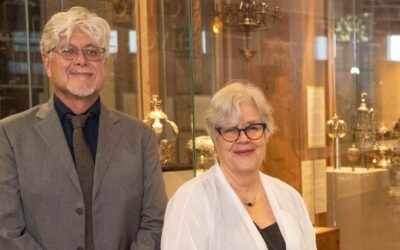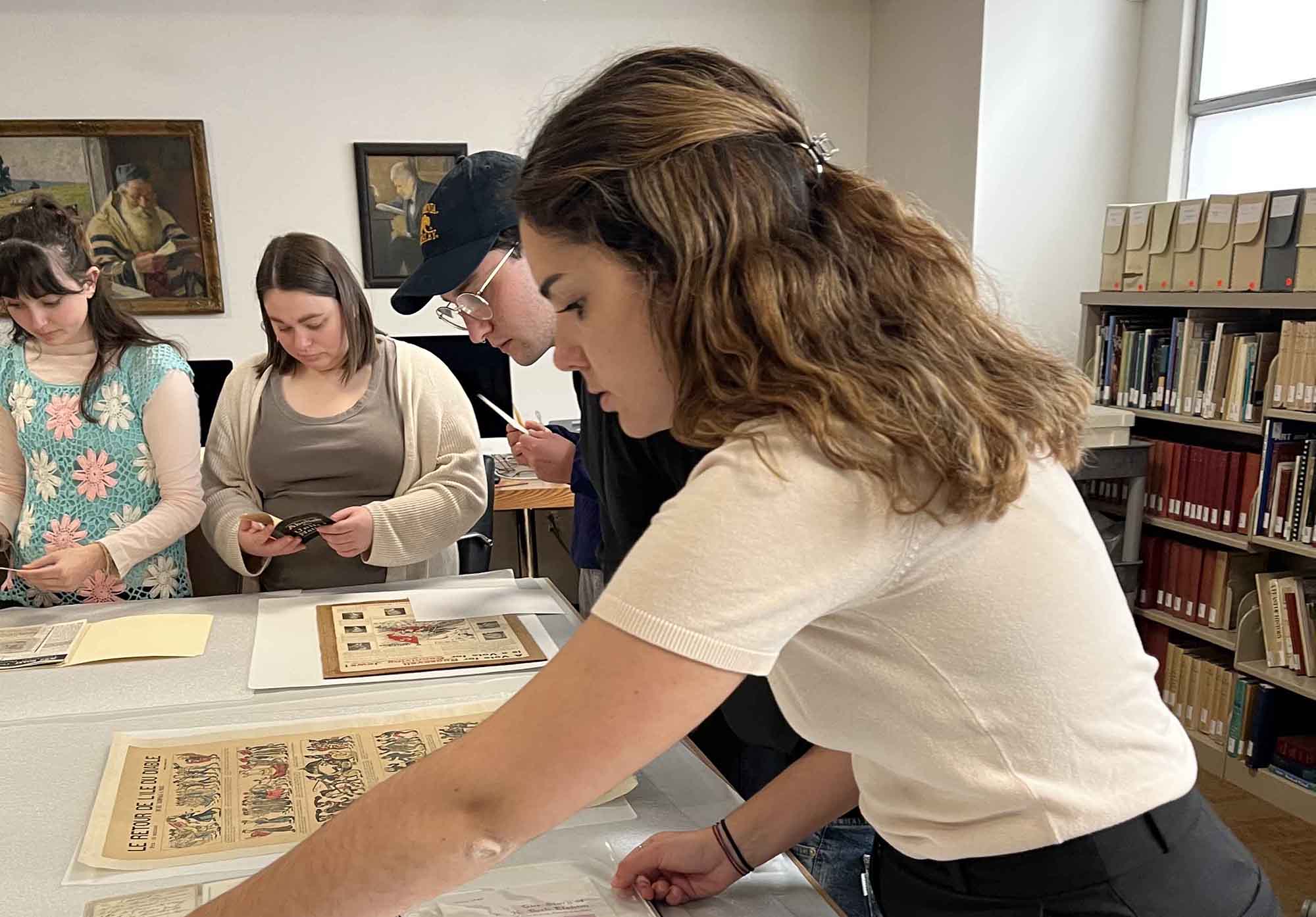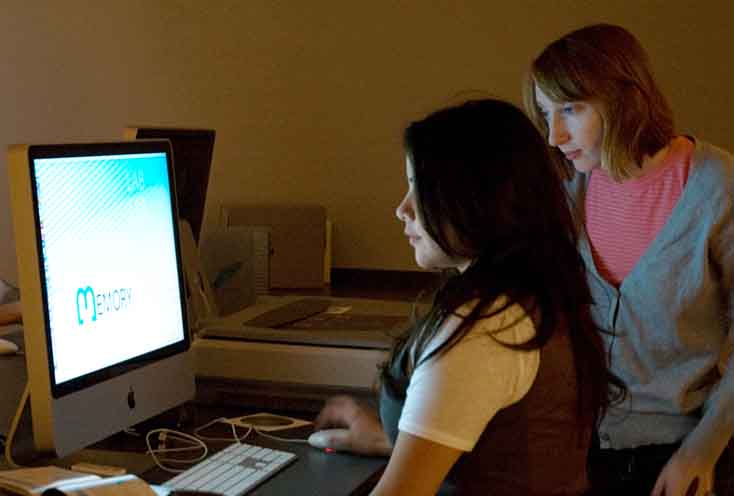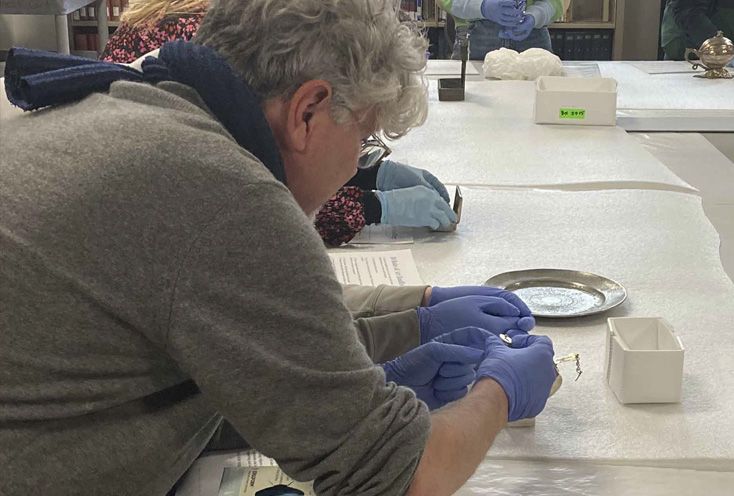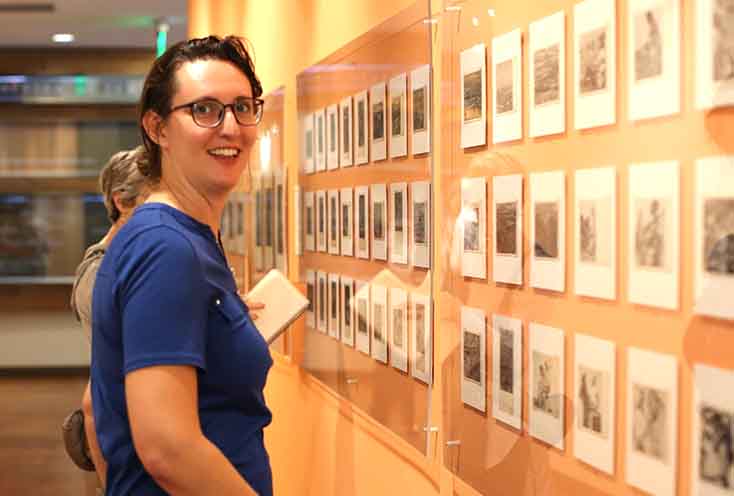About the Magnes
The Magnes Collection of Jewish Art and Life, a museum and research center at the University of California, Berkeley, is one of the world’s preeminent Jewish museums. The Magnes connects people of all backgrounds with the history, vibrancy, and diversity of Jewish life around the world through its collections-based exhibitions and programs.
In 1962, the Judah L. Magnes Museum was founded by Seymour and Rebecca Camhi Fromer, becoming one of the first Jewish museums in the United States. Reflecting the guiding concerns of American Jewry after the Holocaust, the Berkeley museum focused on preserving the legacy of vanishing communities around the world. In 2010, the musuem was acquired by the University of California, Berkeley and became the Magnes Collection of Jewish Art and Life. Learn more about the history of The Magnes.
Our Mission
As a museum and research center at UC Berkeley, the Magnes Collection of Jewish Art and Life preserves, studies, and interprets its holdings to generate new knowledge and understanding of Jewish cultures with and for its academic and public communities.
Our Vision
The Magnes envisions a society that seeks common ground while honoring cultural differences and embraces the diversity of Jewish life around the world.
Our Values
Community
The Magnes fosters a sense of belonging through collaboration and appreciation of diverse perspectives.
Stewardship
The Magnes manages its collections and other resources to ensure the museumʼs ongoing cultural relevance and financial sustainability.
Discovery
The Magnes creates and facilitates collections-based opportunities for research, teaching, learning, and creative expression.
Who We Are
The Magnes and the University
The Magnes is a museum in the Division of Arts and Humanities at the University of California, Berkeley.
Working together with partners across campus, the Magnes helps make the university a robust center for Jewish research, scholarship, and teaching.
The Magnes Museum Foundation
The Magnes Museum Foundation promotes the well being of the Magnes Collection at the University of California, Berkeley. The Foundation holds an endowment on behalf of The Magnes Collection. It funds special projects and contributes annually to The Magnes Collection.
Scholarly Board of Advisors
The Scholarly Board of Advisors support a robust program of exhibitions and research.
Staff
The Magnes Collection has a professional staff noted for its engagement with students, researchers, and visitors.
Latest News
News about The Magnes Collection of Jewish Art and Life. Learn about exhibitions, programs, events, and collection highlights.
The Magnes Community Conversations in July 2025
For the third consecutive year, the Magnes will host a series of Community Conversations with Executive Director Hannah Weisman to engage in meaningful dialogue around the museum’s past, present, and future. “The Magnes originated as a community entity,...
Support Your Jewish Museum
The Magnes swelled with energy as 300 people packed the building to learn from and engage with more than 30 artists, authors, and curators during the museum’s Jewish Arts & Bookfest on May 4. And on a mild evening in March, music, laughter, and dancing filled the...
Magnes Announces Senior Staff Retirements
The Magnes Collection of Jewish Art and Life announces the retirement of Dr. Francesco Spagnolo, Curator, and Julie Franklin, Registrar and Rights and Reproductions Manager. Both will step down from their roles on July 1, 2025, after twenty years of transformational...
Press Room
The Magnes welcomes inquiries from the press. For articles about collections and exhibitions, and other related inquiries, please contact Laura Bratt at lbratt@berkeley.edu.
Newsletters
The Magnes Collection’s “What’s On” e-newsletter provides up-to-date news about the collection, exhibitions, and programs.
Education
As one of the preeminent Jewish collections in the world, the Magnes connects students of all backgrounds with the vibrancy and diversity of Jewish life in the global diaspora and the American West through its holdings of art, objects, texts, and music.
Join the Magnes Team
The Magnes Collection of Jewish Art and Life is a public-facing museum on the University of California, Berkeley campus that conducts research, presents programming, and develops original exhibitions sourced from its collections of art, objects, texts, and music. The Magnes offers a dynamic environment that values creativity, teamwork and collaboration both within the museum and campus-wide.
The Magnes provides a number of ways in which museum professionals, scholars, students, and the community can work with the collection and its resources related to Jewish art, culture, and life.
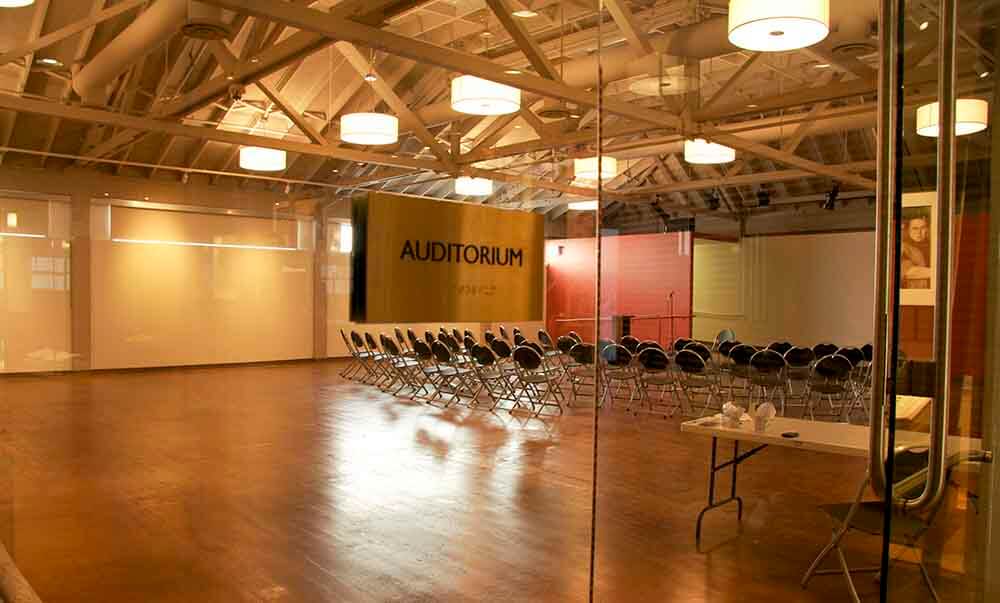
Venue Rental
The Magnes offers designated spaces available for private and corporate events, during and after public hours.
FAQ
When are The Magnes galleries open?
The Magnes museum is open during UC Berkeley's fall and spring semester. The galleries are closed during winter and summer break. Admission is free.
Can I take public transportation to The Magnes?
The Downtown Berkeley BART station is located just around the block from The Magnes, on Shattuck Avenue between Allston Way and Addison Street.
The following bus lines stop in Downtown Berkeley:
AC Transit Bus lines including 6, 7, 18, 51B, 52, 65, 67, 79, 88, 800, 851, and F
Bear Transit: C, P, RFS
Where can I park?
Two- and four-hour metered street parking is available in downtown Berkeley and is payable by credit or debit card. Nearby paid parking garages include the Allston Way Parking Garage (between Shattuck and Milvia), the Oxford Parking Garage (on Kittredge west of Oxford), and the Center Street Garage (at 2025 Center Street, accessible from Center or Addison Streets).
Please note The Magnes cannot guarantee availability of parking and that many parking lots near campus are either unavailable or charge special event pricing during major campus events, including Cal athletic events. View the latest athletics schedule here.
Is the museum accessible by wheelchair?
The Magnes Collection’s front lobby, galleries, and auditorium are all accessible by wheelchair. Staff will assist if required.
What is The Magnes's service animal policy?
Service animals are always allowed on campus grounds and in campus buildings, including in The Magnes.
A service animal is a dog or miniature horse that is individually trained to do work or perform tasks for persons with disabilities. Dogs that solely provide companionship, comfort, and emotional support are not considered service animals under the ADA.
More information on University policy regarding service animals.
Does the Magnes participate in the Museums for All program?
Yes, the Magnes participates in Museums for All, a program that provides free or reduced admission to families who are a part of the Supplemental Nutrition Assistance Program (SNAP) or Women, Infants and Children (WIC) Electronic Benefits Transfer (EBT) cards.
Admmission is free with no need for reservations. Just come in during museum hours.
Museums for All is a national access program that encourages individuals of all backgrounds to visit museums regularly and build lifelong museum habits.
How do I gain access to the collection for research or other academic purposes?
Appointments with the Florence Helzel Collection Study to view select holdings for research or other academic or educational purposes may be made two weeks in advance of intended use.
For further information regarding collection access and use of the Florence Helzel Collection Study, refer to the Collection Services Page.
May I take photographs in the museum?
Still photography for noncommercial, personal use is permitted, unless otherwise noted in the galleries. The use of tripods and camera extension poles is prohibited.
How do I receive The Magnes Collection's What's On Newsletter?
To get up-to-date information about our upcoming programs and exhibitions, please sign up for our mailing list and receive our monthly newsletter sent right to your inbox.
Do you still have a question?
If you can’t find the answer to your question, you can always contact us.
![]()



